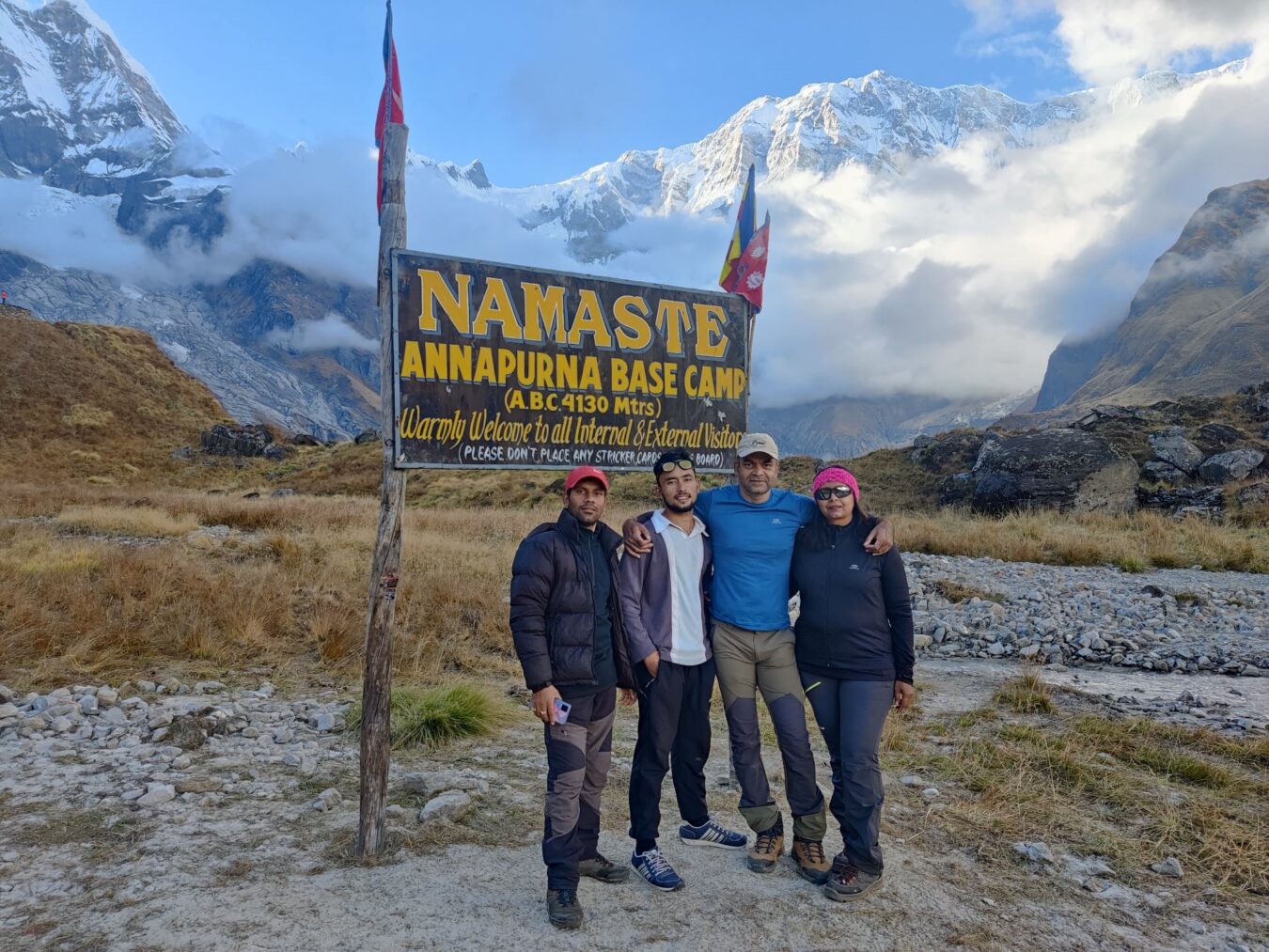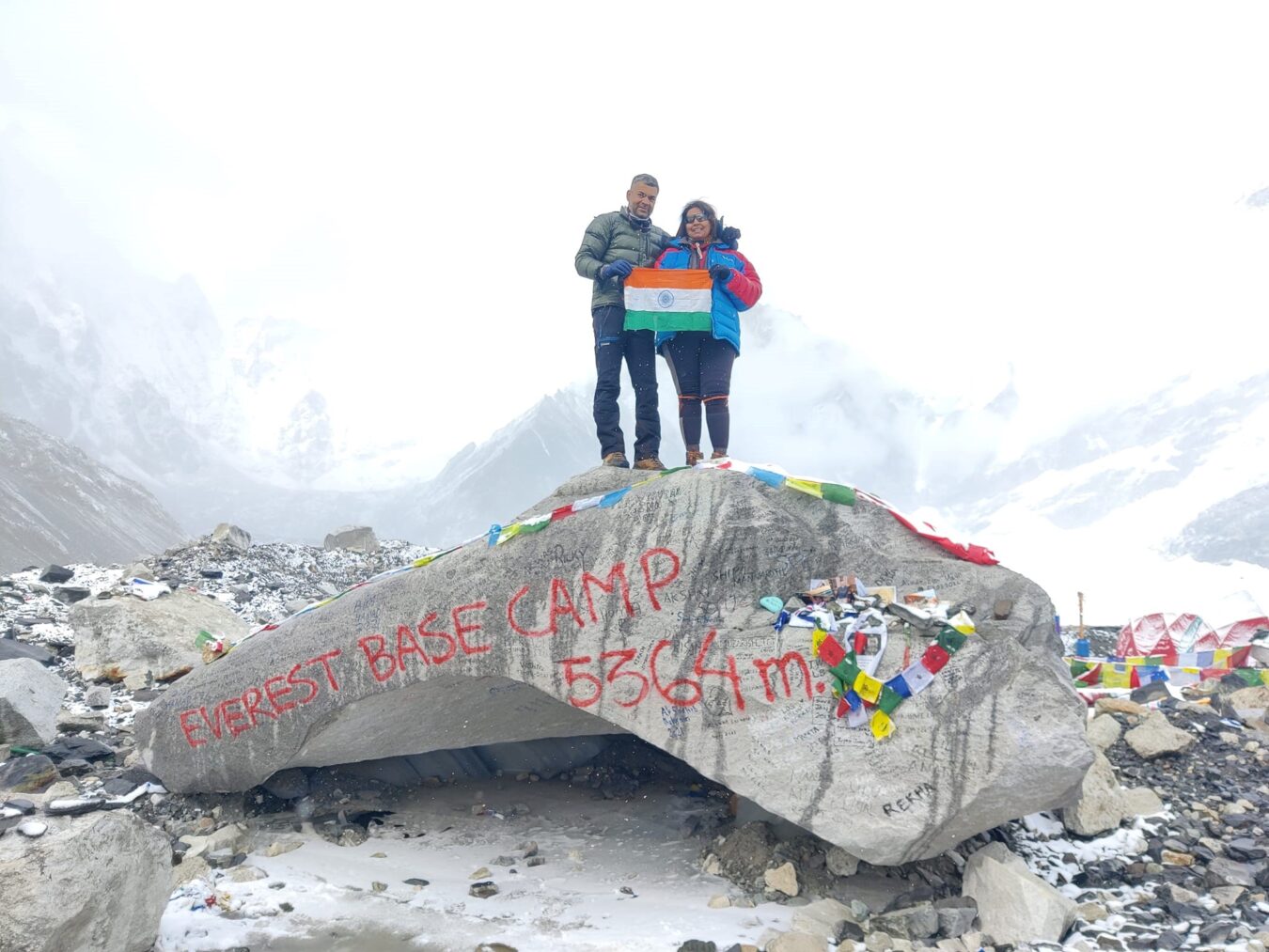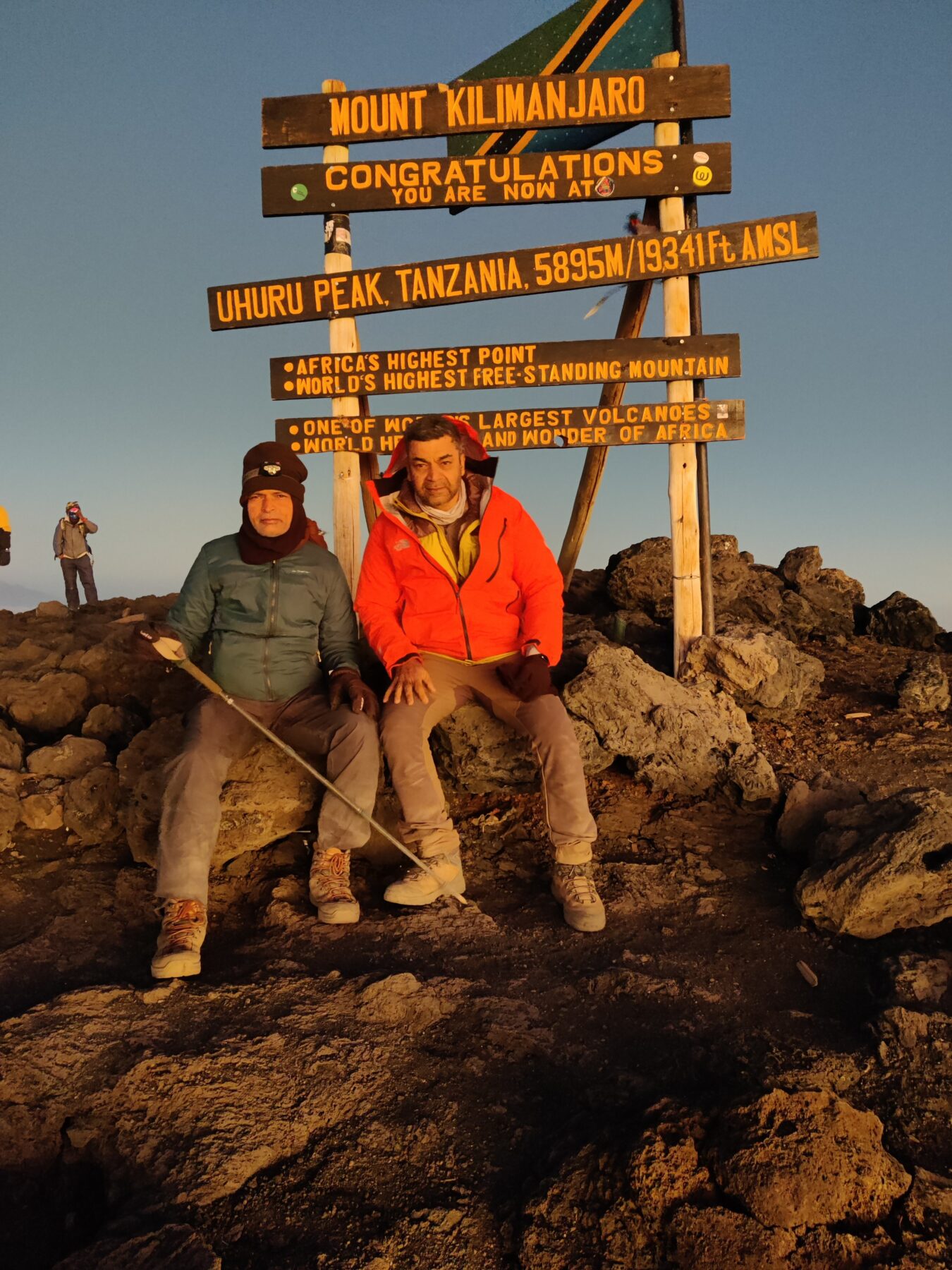Avid Trekker: Snehal Shah, PGP 1995
When something no longer serves you, that means it no longer helps you move forward in the direction you want to go and that’s exactly what Mr. Snehal Shah decided to do. A private equity savant, he worked in the field for over 20 years before taking early retirement from the corporate world.
He is now pursuing his interests, hobbies and passions. One among them is trekking. With over 20 treks both in India and abroad, all tell beautiful tales. In this interview he shares his journey, talks about his interests and much more.
Please tell us something about yourself.

Hi! I am Snehal. I did my engineering at Birla Vishwakarma Mahavidyalaya, Vallabh Vidyanagar, Gujarat in 1991. After working for a couple of years as an engineer, I decided to go for post-graduation in management. I was one of the lucky ones who got an admission offer from IIMB in 1993 and spent two years on the campus. I got into the private equity industry (before it became glamorous, as it was at an infancy stage in India then) and spent 20 years in the space across three different companies – ICICI Venture, Actis, and Fairwinds. Sometime in 2016, I decided to call quits and took a permanent break from work. I am staying in Mumbai with my father, wife, and daughter. My son is working as a software engineer in the USA.
Can you tell us more about your decision to leave the corporate world early?
I have been lucky in life. I got into IIMB on my first attempt. I joined the private equity sector much before it became very sought after – and had good bosses and colleagues at all three companies where I worked. I have also been an equity investor, and the investments have done well. At some point, I got a sense of being financially secure, possibly leading to the feeling of not enjoying what I was doing at work. Also, one has read and heard that most people spend their life earning money, and when it comes to enjoying the fruits of all the hard work, their health does not support it. It was more of a snap decision wherein I spoke with my boss and left the corporate world.
How did you cultivate an interest in mountaineering/ trekking?
I had done my first trek (to Yamnotri) sometime in 2000 when I worked with the ICICI Group. I was completely unprepared, which I realised once the trek started! My next trek was in May 2009 to Gomukh/Tapovan. A friend (Faisal Aftab, also an IIMB alum) had planned it with some of his friends and I had joined them. I realised that you get into a different zone when you are in the mountains, and I loved the experience. Though I also realised that I had to work more on my fitness. The next trek happened after a gap of 7 years when some of my friends and I decided to go on the Roopkund trek. This plan was made just after I had quit my formal job. The Roopkund trek again made me realise that I had to work on improving my fitness. I had then just joined a Crossfit gym near my place, and that helped me build my endurance and strength. The subsequent treks I have done have been much better (in terms of the fatigue your body faces when the day ends), and the treks have become more enjoyable.
Out of all your expeditions, which trek has been your favourite and why?
I have done eleven high-altitude treks and eight treks in the Sahyadris to date. Each trek has its own charms, and it isn’t easy to rate them. However, some of the treks which hold a special place are –
Goechala – the sight of the Kanchenjunga turning golden with the first rays of sunlight is unforgettable
Brahmatal was the first trek where Surabhi (my wife) accompanied me. We did Annapurna Base Camp and Everest Base Camp also together subsequently
Kugti Pass was a tough trek which I went for with my son – he turned 18 while we were on the trek!
Kashmir Great Lakes – the terrain you walk on is magical. I think one would rarely see such broad valleys on any trek
Kilimanjaro – the highest altitude I have done to date – 5,895 m/19,340 ft
Alang Madan Kulang (AMK) in Maharashtra – this is one of the most challenging treks in Maharashtra. It involves some rock climbing using special equipment, and some of the trails are pretty narrow – you misstep by an inch, and the valley is there to welcome you!
Two treks in India that are on the wish list are Chadar Trek and Stok Kangri Trek, both in Ladakh.






What was your most recent trek and what’s on your list next?
My last high-altitude trek was Kilimanjaro in August, and the most recent one was at a place people call God’s Valley, which is at the bottom of a 1200 ft high Kalu Waterfall near Malshej in Maharashtra. My friends have initiated most of the treks I have gone on, so I am waiting for someone to propose a trek, and I will go! Otherwise, the Chadar trek is on my agenda for January 2023.
Your advice for someone who wishes to try out mountain climbing (a few dos and don’ts)
I am no expert to give advice! However, I sincerely believe that one should go and explore spending time with nature – away from civilisation – at least once, and if you find it enjoyable (which I am sure you will!), this will grow on you. Two friends with me on the Everest Base Camp trek (age 45-50) were first-time trekkers and could finish the trek without any problem. At the same time, if your fitness levels are high, the treks become more enjoyable. Regular cardio workouts and strength training help improve your fitness – working on your legs help more. One can also carry a 5-10 kg backpack and climb the stairs of a building – as most of us don’t have access to hills where one can go for a climbing routine. There are quite a few good trekking companies in India now, so you just need to go and walk on the trek with about a 3-5 kg backpack, and there are options available to “off-load” the larger bag with porters/mules.
What do you cherish the most about your time at the institute?
It has been 27 years since I graduated from IIMB. It gave me a good platform to join the corporate world, and more importantly, the friends I made at the institute are a more valued treasure.
Snehal pens all his trek stories and more on his blog page. Please click here for access.


